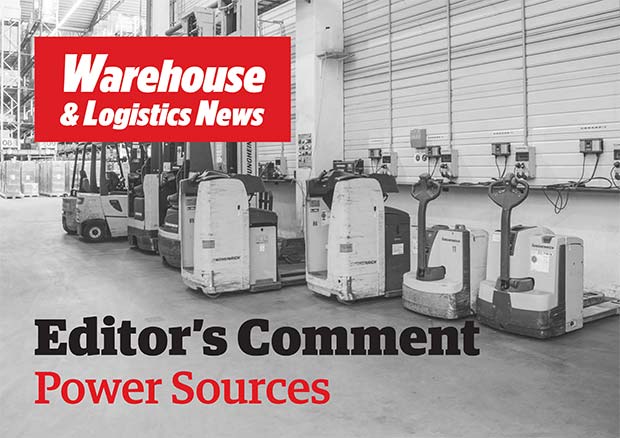The recent nationwide lockdown served as a reminder of the importance of distribution and logistics networks. These networks rely on forklift trucks and other cargo handling equipment, which in turn rely on LPG and batteries.
This article was first published in the September 15th 2020 issue of Warehouse & Logistics News, subscribe to the magazine by clicking here.
 To keep batteries in top condition, Hoppecke suggests placing the battery into service and completing a full discharge and charge cycle. Never discharge a battery beyond 80% depth of discharge (DOD) and do not operate the battery if its specific gravity is below 1.150sg. If above 45oC, allow the battery to cool before charging or operating. Hoppecke also recommends keeping the battery top clean and dry with the vent caps tightly in place.
To keep batteries in top condition, Hoppecke suggests placing the battery into service and completing a full discharge and charge cycle. Never discharge a battery beyond 80% depth of discharge (DOD) and do not operate the battery if its specific gravity is below 1.150sg. If above 45oC, allow the battery to cool before charging or operating. Hoppecke also recommends keeping the battery top clean and dry with the vent caps tightly in place.
With the impetus on maintaining increased demand across warehouses, operators need to extend the use of their machinery. Lithium-ion helps achieve this reduction in idle time through substantial improvements in speed of charging, and the primary advantage of the opportunity charging option, when required, with no effect on battery service life. Sunlight’s Li.ON force batteries reach full charge in under an hour and a half, allowing for 3 shift operations without the need for battery change in the middle of the working day. Using lithium-iron-phosphate offers approximately 4,500 charging cycles, depending on user profile. The added longevity translates to a marked difference on return on investment despite the higher initial purchase cost.
EnerSys has extended its Hawker Water Less battery range to reduce downtime in time-critical logistics applications involving pallet trucks. Material-handling industrial trucks in the British Standard (BS) Class 3 can now benefit from longer water topping-up intervals and up to 75% lower maintenance costs. A proven technology for larger industrial trucks, the Water Less battery range has now been updated to achieve greater power density, meeting the requirements of smaller vehicles in BS Class 3. This includes hand-controlled forklifts such as electric pallet jacks, stackers and tow tractors, which constitute the largest category of industrial trucks globally.
Fronius Perfect Charging has launched the Fronius Energy Hub, a flexible and mobile charging station for outdoor applications. The hub gives operators of electric forklift trucks a quick and easy way to move the charging of their traction batteries outside, saving valuable space in the warehouse and simultaneously improving safety. Benefits of the hub include safe charging of lithium-ion batteries and rapid identification of the coolest battery, even outdoors.
Imperial Logistics International’s chemical logistics division has been awarded the contract to store and handle lithium-ion traction batteries for the German operations of a major global automotive manufacturer. Under the contract, Imperial will store the batteries at two locations with a combined footprint of around 25,000 square metres. At one of these sites – one of Imperial’s 17 European specialist multi-user hazmat warehouses – it will also be responsible for charging the batteries in readiness for delivery to the manufacturer’s after market network.
We can all be grateful for the motive power provided by LPG and batteries that keeps the nation moving.
George Simpson
Features Editor




Comments are closed.